If Donald Trump wins next week’s election, the commentariat will grasp for ways to rationalize it. The idea that Americans might prefer to be governed by a disinhibited postliberal gargoyle will be too bitter for many of them to stomach. So they’ll reassure themselves, and us, that Trump won despite his villainy rather than because of it.
That will be annoying. One reason it’ll be annoying is that it’s true, sort of.
Undeniably, in a race as close as this one, the difference maker on Tuesday if Trump prevails will be voters who weren’t thrilled with the whole “fascism” thing but were willing to risk it for the sake of ending inflation. We can (and will!) argue over whether those voters comprise a small share of his base or a large one relative to the share that relishes his villainy, but there’s no doubt that there are enough of them to swing the election. If he wins, policy will have been decisive.
Imagine that. Somehow, it might all come down to policy in the least policy-focused, utterly unserious—on both sides—presidential race of our collective lifetimes.
Kamala Harris’ strategy from the jump has been to avoid discussing policy as much as she can. That’s partly because she’s terrible at it and partly because her stated positions are destined to remind voters how much they disliked Joe Biden’s presidency. There’s no agenda she can promote that will make Americans forgive and forget about inflation and an open southern border. Her best play has been to reimagine herself as a “blank screen” generic Democrat, try to radiate leadership “vibes,” and hope that voters find Trump disgusting enough to hand her a victory by lesser-evil default.
Still, although we don’t know specifically what we’d get from a Harris administration, we know in broad strokes. Given the intense backlash to Biden’s immigration policies and to progressive cultural excesses like “defund the police” and nonbinary gender identities, President Harris will need to be more neoliberal than hard-left in office if she hopes to be reelected in 2028. Even if she’s inclined not to be, and would rather revert to the “Bernie Sanders but more so” persona of her 2019 run for president, the fact that she’ll be stuck with a Republican Senate will leave her no choice.
Her administration would resemble Barack Obama’s circa 2015, I expect. I’m not looking forward to that, but it beats running a grand experiment in which we make Don Rickles a caudillo just to see what happens.
What will Trump’s administration look like policy-wise, by comparison? Do his voters have any idea, even in broad strokes?
Ignorance is bliss.
I think they think they do.
The fact that he has a distinct vision for the country makes the blanks seemingly easy to fill in. He’s a populist; in all things, he’ll prioritize the best interests of working-class Americans over those of the egghead elite. And he’ll be a good steward of the economy. We watched him do this job for four years, after all; everyone fondly remembers the idyllic pre-COVID days of ZIRP.
Insofar as his supporters are voting for policy, they’re voting for a better life for America’s “forgotten man” or for a time machine back to 2019. Or for both.
But if we’re going to let them off the hook morally next week for electing him, reasoning that they chose the bottom line over the constitutional order, whether or not they’re actually aware of Trump’s policies matters, no? It’s one thing to roll the dice on an authoritarian after considering the pros and cons. It’s another to do so while having next to no idea of what the cons are, whether out of blissful ignorance or willful blindness.
What Trump’s voters are actually voting for is magic beans. On one issue after another, he’s made ludicrously utopian promises to them without any pretense of explaining how they’ll achieve the desired results. And in each case, remarkably, there’s reason to think those policies will hit the “forgotten man” of the working class hardest. His supporters either don’t grasp his agenda or are electing him despite it, not because of it.
I’ve seen the “magic beans” phenomenon firsthand when chatting about foreign policy with Trump supporters in my family. They’re mystified when I tell them he might plausibly try to withdraw the U.S. from alliances in Europe and the Far East. (Fun fact: Unlike the Democratic platform, the Republican platform this year conspicuously didn’t mention Taiwan.) And they’re downright dumbfounded when I suggest there’s an ideological reason for that: Trump and his right-hand man, J.D. Vance, disdain Western liberalism and hope to realign America with authoritarian regimes like Russia and China, with whom they feel more kinship politically.
My Trumpy relatives had no idea. They’ve been sold magic beans about their man’s “strength” and assume, I think, that tough-guy bravado alone will deter Russian and Chinese expansionism.
Forget foreign policy, though, as voters don’t care about that. Trump’s great, possibly insuperable advantage is his pre-pandemic economic record. Whatever ends up happening on the Korean peninsula, one might tell oneself, at least the good times will roll in America again once he’s back in office. In reality, here’s what’s on tap according to one very well-known Trump mega-booster and prospective White House adviser:
Elon Musk appeared to acknowledge Tuesday that his pledge to help former president Donald Trump slash federal spending could unleash severe, short-term economic turmoil, underscoring the fiscal stakes as voters weigh whether to send the Republican back to the White House.
Musk first outlined his highly aggressive target at a raucous campaign rally in New York last weekend, promising to identify “at least $2 trillion in cuts” as part of a formal review of federal agencies that he would conduct if Trump wins next week’s election.
Unless you’re planning to take a hatchet to entitlements and the Pentagon, both of which would amount to political arsenic, you’re not cutting $2 trillion from the federal budget. That’s pure magic beans. But it’s telling how Musk reacted when a commenter on Twitter speculated that those cuts would inspire a “severe overreaction in the economy” causing markets to “tumble” (before, supposedly, producing a healthier, more sustainable economy). “Sounds about right,” Elon confessed.
Do Trump’s voters understand that blowing up the federal budget and sowing economic chaos is what his team intends in a second term?
When he assures them that tariffs are a panacea for problems ranging from child care costs to budget deficits to war(!), somehow without any of the obvious downsides like driving up prices and causing mayhem in international business, do they know—or care—that he’s handing them magic beans?
Do they actually believe he’s going to eliminate the federal income tax and replace it with a tariff-based system instead, which wouldn’t produce nearly as much revenue?
Have they heard that his plan to eliminate income tax on Social Security payments will accelerate the crisis in the program, potentially bankrupting it by 2031 and causing an automatic one-third cut to benefits? Are they aware that extending the Trump tax cuts of 2017, which their man plans to do, would mainly benefit the well-off and drive future deficits twice as high as Harris’ plans would (unless Musk really does end up nuking half of the federal budget somehow, that is)? Do they grasp what will happen to programs like Medicare as our sovereign debt balloons and paying interest on it consumes more of the federal budget?
Are they aware that the Republican speaker of the House, a top Trump crony, recently promised “massive reform” in health care markets that would functionally result in “no Obamacare” even though Trump has nothing more than the “concepts of a plan” about what might replace it?
Have they given a moment’s thought to the economic consequences of pulling millions of illegal immigrants off the job and deporting them, or of making America so inhospitable to them that they choose to go home? Presumably not: The point of “magic beans” logic is to let voters believe that seismic economic disruptions, to the labor force or otherwise, somehow will involve no trade-offs whatsoever.
How can policy explain Donald Trump’s populist victory next week when so many of these policies are obviously anti-populist?
A civic failure.
It’s the working class, not the dreaded elites, who’ll suffer most under the initiatives I’ve described.
Tariffs, for instance, are a regressive tax. The higher prices they’ll cause will pinch the upper class but devastate the Trump-worshiping average Joe, just as inflation did. The same goes for the “severe overreaction in the economy” that Musk’s budget cuts and Trump’s mass deportation scheme will cause. It won’t be office workers who’ll be laid off en masse during the resulting downturn, it’ll be the “forgotten man” whom Donald Trump is allegedly looking out for.
The same “forgotten man” will bear the brunt from Social Security cuts, obviously, and from the end of Obamacare subsidies once they’re no longer available to help lower-earning consumers afford coverage. And as the federal debt grows larger and servicing it becomes more of a burden for Uncle Sam, entitlements like Medicare will need to be raided to find the necessary revenue for interest payments. A weaker “social safety net” will hit blue-collar America harder than the professional tier, needless to say.
It’s a strange form of populism that would condone all of that. But then it’s a strange form of populism that’s prone to tap-dancing for big business whenever it’s in front of a crowd of mega-rich donors.
Trump’s anti-populism isn’t limited to economics. As my former colleague Andrew Egger noted today, one of America’s nuttiest anti-vaxxers is now claiming that his friend Donald has promised him “control of the public health agencies” in a second term if Republicans win next week. Howard Lutnick, the co-chairman of Trump’s transition team, went on CNN on Wednesday night and sounded almost giddy at the idea, having gained a new appreciation of vaccine skepticism after listening to RFK discourse on the matter for a few hours.
Which class do you suppose will suffer more if anti-vax crankery becomes federal policy and certain infectious diseases turn endemic again: the college-educated elite, or the less-educated, less-insured, lower-earning working class?
Earlier I theorized that Trump’s “policy-minded” supporters are voting for him because they prefer him on the economy or because they believe he’ll put the average Joe first and the rich second. If that’s so, I don’t know how to reconcile their support with his actual agenda as I’ve explained it except as a matter of “magic beans.” He’s Lyle Lanley selling them a monorail and they’re ready to buy.
Or, I suppose, there’s another explanation: The “populism” to which many Trump fans subscribe is an inch deep in substance. It has little to do with economic programs like expanding the child tax credit to meaningfully help the average Joe and nearly everything to do with cultural resentment toward the sort of liberal who regards them as “garbage.” In light of the many momentous challenges facing America here and abroad, it’s objectively preposterous to let one’s vote for president be decided by the candidates’ policies on an issue as niche as transgenderism—but Trump is closing hard with that message and, per the polls, it seems to be working for him. He knows which “policies” prospective MAGA voters care about, and which they don’t.
It’s a testament to how much populist credibility he’s wrung from cultural resentment, in fact, that he can endorse the sort of economic agenda he has without blowing himself up. If Kamala Harris proposed bankrupting Social Security, slashing a few trillion in spending, and dropping a tariff-shaped anvil on the working class, she’d be annihilated for her supreme betrayal of the Democrats’ blue-collar base. Trump, on the other hand, does all of that while mumbling about how men taking estrogen shouldn’t play women’s sports and everything’s cool.
So no, I won’t be joining next week’s pundit jamboree straining to spin Trump’s victory as a make-the-trains-run-on-time triumph of policy over civics. It’s true that policy will decide the election insofar as Biden’s record on inflation and immigration is Harris’ main obstacle. But it’s also true that most voters who will prefer Trump on those grounds are entirely unserious due to ignorance of his agenda, twisted priorities, or both.
And that’s a civic failure in its own right.
It’s not the sort of civic cataclysm of which proto-fascist voters are guilty, preferring Trump because he’s a villain. But many who end up supporting him for “policy” reasons will have committed the lesser civic offense of failing to have some basic sense of what they’re voting for before they voted. Either they didn’t care to educate themselves about Trump’s economic agenda, they did educate themselves but didn’t understand what that agenda will unleash, or they understood it but dismissed their well-founded concerns by declaring “in Trump we trust” and assuming that he must know what he’s doing.
I lean toward the third theory, which fits best with the cultish nature of his support. If you’re willing to vote for a strongman, with all that entails, chances are your alleged seriousness about policy will ultimately devolve into excuses for having faith in the strongman and not getting bogged down in the fine print. Trump is what you get when a population completely gives up on taking its problems seriously and opts for Lyle Lanley’s magic beans.
The only thing I’m looking forward to in his second term, come to think of it, is seeing how many of these so-called “policy-minded” voters stick with him as the illusion that he’ll do the right thing evaporates. It’s a cinch that Americans’ desire for stricter immigration policies will reverse thermostatically as the ugliness of Trump’s mass deportation program unspools. And if we do end up with an economic slowdown, whether organically from an overdue recession or artificially from tariff-palooza, the idea that he’s some sort of economic genius whose illiberal impulses are worth tolerating to that end will shatter. Who knows? It might even dawn on them belatedly that he didn’t run for president again because he cares about “the forgotten man” but only because he’s desperate to stay out of prison.
It won’t be a happy time. He, and we, deserve nothing less.
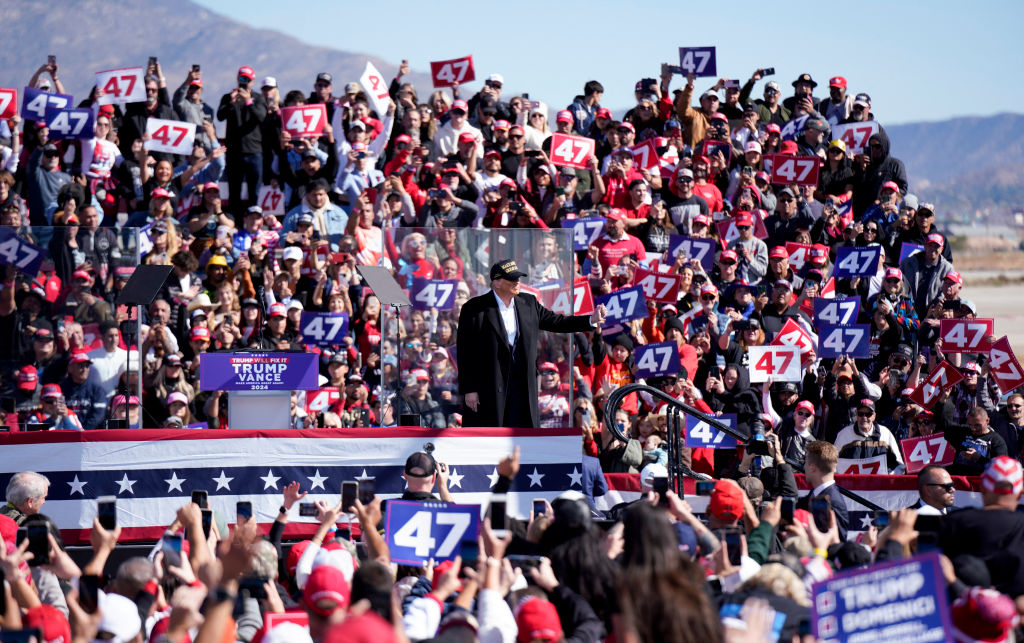

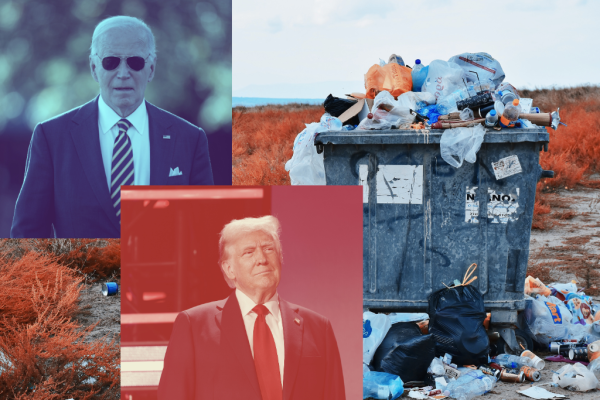
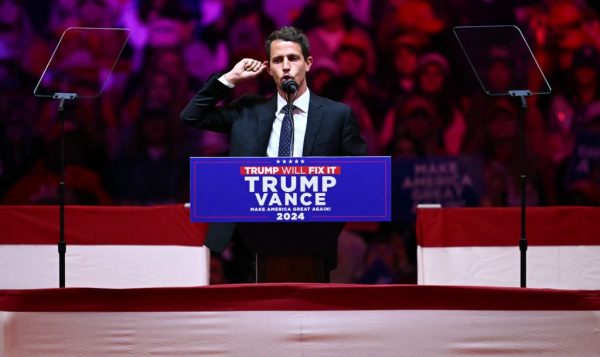
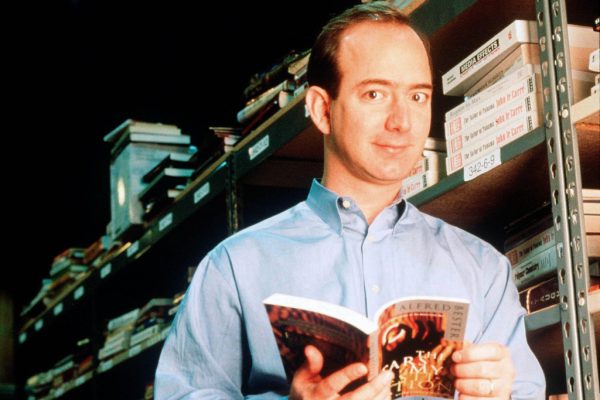
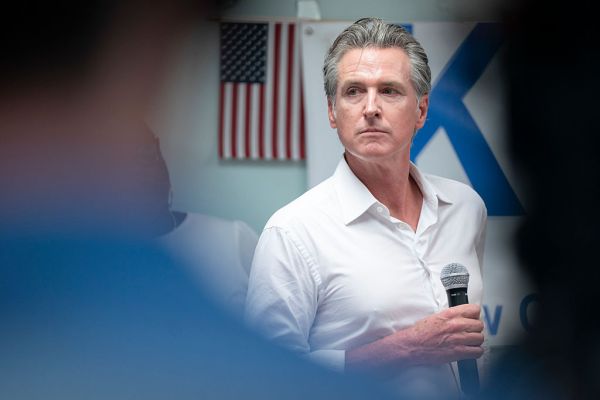


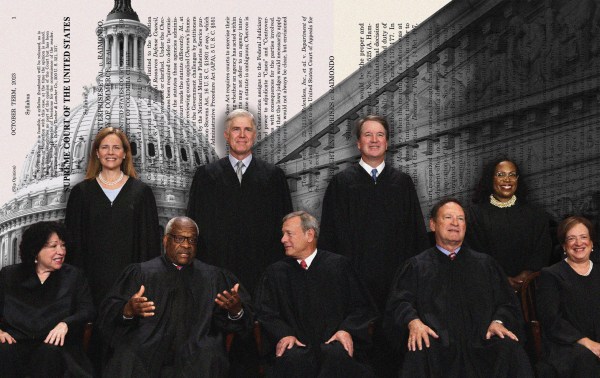

Please note that we at The Dispatch hold ourselves, our work, and our commenters to a higher standard than other places on the internet. We welcome comments that foster genuine debate or discussion—including comments critical of us or our work—but responses that include ad hominem attacks on fellow Dispatch members or are intended to stoke fear and anger may be moderated.
With your membership, you only have the ability to comment on The Morning Dispatch articles. Consider upgrading to join the conversation everywhere.